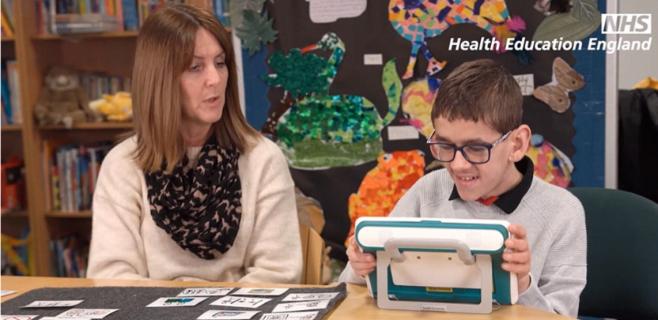You are here
New resource supports the delivery of sensory healthcare in special residential schools and colleges
7 December 2020

Delivering healthcare to children with learning disabilities and autism will be made easier thanks to a new e-learning programme developed by Health Education England, in partnership with NHS England and Improvement (NHSE/I).
Launched today, the Delivering sensory health services e-learning programme is designed to support dentists and their teams, eye care specialists, including opticians and optometrists, and supporting staff and audiologists who all carry out these sensory health checks
Some children and young people with learning disabilities and autism can have difficulties understanding, receiving, and responding to information and may experience sensory processing difficulties. People with these issues may have an adverse reaction to anything that under or overstimulates their senses, such as light, sound, touch, taste, or smell. This can affect their behaviour and ability to interact with other people making it more difficult for them to access health checks.
The programme outlines:
- What to consider when communicating with children and young people and their families in these schools or colleges
- How to work with other professionals to help support whilst in situ and provide this support
- To help prepare beforehand in order to understand how a particular school or college works.
- Specific topics on autism and behaviours that can be a challenge and what sensory impairment means to the patient.
- How to reduce/avoid this sensory overload whilst caring for the individual.
Professor Ashok Roy, HEE’s National Clinical Advisor for Learning Disability and Autism, said:
“Our e-learning programme equips healthcare workers with the skills they need to work in special schools and colleges. By taking health checks to the places where children live, more young people will be able to access preventative treatment and benefit from early intervention. This reduces the number of hospital admissions for conditions that are avoidable (for example tooth pain, because of tooth decay).”
The resource may also be useful for other health and care professionals working in these settings for the first time. Other organisations who supported the development of the resource include: The National Association of Special Schools, Challenging Behaviour Foundation, Seeability, University College London and University College Hospital.
Access the Delivering sensory health services programme